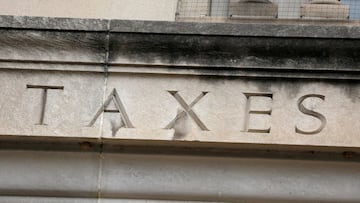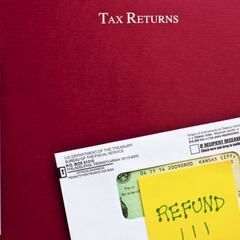IRS delays: Is identity theft delaying stimulus checks and tax refunds?
IRS announces that they have noticed a sharp increase in fraud this tax season, which has created delays in their ability to send funds in a timely manner.


The Tax Advocate Service (TAS), an independent branch of the IRS that services to represent the needs of US taxpayers, has released a report that details a sharp increase in fraud this tax season.
Each year, the TAS releases a report to Congress describing the tax season, including the challenges and milestones that were made. This year one of the main challenges identified was the delay many in the US are experiencing in receiving their tax refund. The report highlights that these delays have been caused by the “IRS’s fraud detection filters.”
What is causing the delays?
These filters aim to protect against the misuse of public funds by detecting “fraudulent wage or identity theft-based claims.” In past years, these filters have caused issues as they did not accurately identify fraud, creating high levels of false positives, leading to a delay in the sending of refunds. This year, the problem has been exacerbated because the filters have flagged fifty percent more possible cases of fraud than last year. More than 5.2 million returns were flagged including, twenty-five percent for income verification and eighteen for identity verification. In some cases, these instances can lead to delays lasting more than three months in taxpayers getting their refund.
The TAS has stated they are supportive of IRS taking measures to protect against fraud as in most years, and they help protect public funds. In 2019, of the millions of fraud flags identified, 63% indicated instances of fraud. However, the organization has recommended that the IRS “continue to refine its filters to detect fraudulent claims with greater precision." In conjunction with the possible fraud, the agency's slow pace of working through paper returns has left millions are still waiting for their return. These issues are serious as the average refund this year is expected to surpass $2,500, a critical lifeline for low-income filers.
Fraud on the rise with various forms of government benefits
Related stories
This news on an increase of fraud came at the same time as Axios reported that over half of unemployment benefits claimed were fraudulent. As the pandemic began to take hold of the US and millions were left without work, the federal and state governments worked quickly to get unemployment benefits to households. Months into the pandemic, individuals who had not lost their jobs received letters that their benefit claim had been approved. Confused, many individuals tried to contact the IRS and state authorities but encountered long wait times, discouraging many from taking action to resolve the issue.
Choosing expectancy, many of the state organizations tasked with sending these payments decided to forgo additional inspections that would identify fraudulent claims. A recent report from the Department of Labor Office of Inspector General Audit (IGA) found that under the CARES act alone, criminal syndicates and individuals were able to steal more than thirty billion dollars. The agency has released recommendations to prevent these sorts of issues going forward. Still, when accounting for the two additional stimulus bills passed after the CARES Act, some experts believe that more than four hundred billion has been stolen since the pandemic began.
- IRS
- Covid-19 economic crisis
- Science
- Tax fraud
- Coronavirus Covid-19
- Economic crisis
- Inland Revenue
- United States
- Tax avoidance
- Pandemic
- Coronavirus
- Recession
- North America
- Economic climate
- Virology
- Outbreak
- Infectious diseases
- Public finances
- Diseases
- Microbiology
- America
- Crimes
- Medicine
- Economy
- Finances
- Biology
- Health
- Justice
- Life sciences

